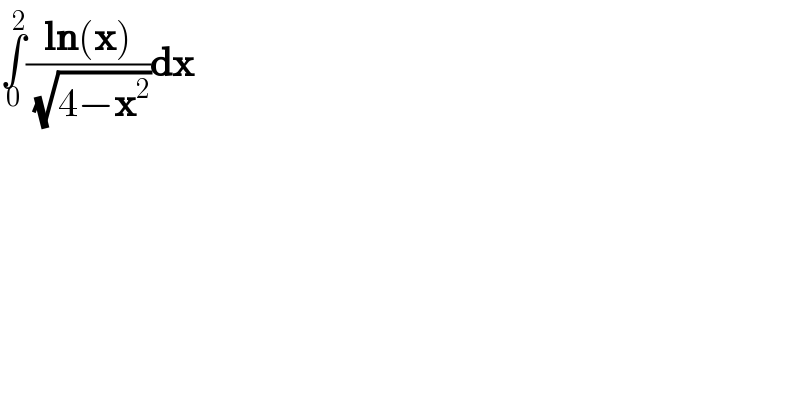
Question and Answers Forum
Question Number 60240 by ANTARES VY last updated on 19/May/19

Commented by maxmathsup by imad last updated on 19/May/19

| ||
Question and Answers Forum | ||
Question Number 60240 by ANTARES VY last updated on 19/May/19 | ||
 | ||
Commented by maxmathsup by imad last updated on 19/May/19 | ||
 | ||